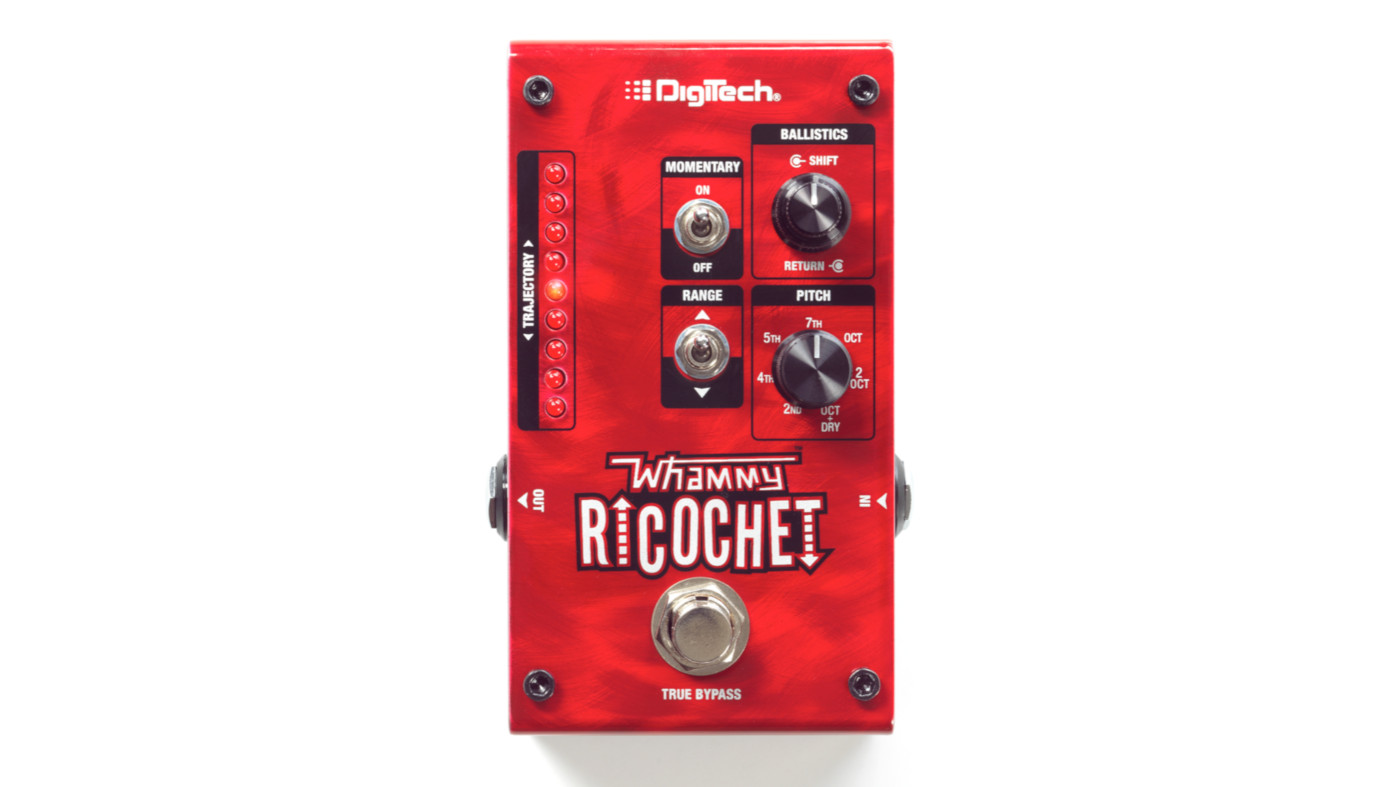
"Amateur pedal maker, dumb guitarist," is how the incredibly humble Jamie Stillman describes himself in this new episode of Sweetwater's What's On Your Pedalboard? Of course, the ever-growing catalogue of his company Earthquaker Devices suggests otherwise, but Stillman's own effects choices on his newly-built pedalboard reflect a player who likes the leftfield with his band Relaxer, and a cheeky Ebay overdrive pedal purchase.
When he filmed the interview the pedalboard was only three days old in its roadcase. He's not into MIDI switching (tried it, didn't like it), there's two DigiTech Whammy Richochets, his Klon Centaur in the top left isn't a real Klon at all and there's some mysterious-looking pedals on there without branding.
The silver one of those is a Hizumitas Fuzz Sustainer prototype, while the black one next to it is a fuzz pedal Stillman made for himself years ago. A strange pedal that seems to be changing in character over time; "Now it's doing some shirt flange reverb thing and I can't really figure out why it's happening but I'm going to leave it alone because it's pretty cool."
The DigiTech Whammy Ricochets and Drop are "the goofy part" by Stillman's own admission. And we love it. One Richochet is set to go down an octave, one is set to go up with a TC Electronic Quintessence that Stillman uses as his harmoniser. "I love this stuff," Stillman says of the octave pedals. "At the very least I want a sub-octave on a dry signal, and I want to be able to do a pitch blend up and down, or just straight octave up and down."

This is kind of a newish thing for me with the Centaur – I got into it a year ago
Stillman reckons the DigiTech Drop is "the best sub-octave pedal there is" with "no latency, weird table or glitches." So if its founder is such a fan of this world, why don't Earthquaker make an octave pedal? He's asking that himself.
"We've made a couple of different octave pedals – we have the Organizer, which is more vibe orientated and the closest to a POG-style effect that we have," reflects Stillman. He notes the more recent Pitch Bay Earthquaker released too, but admits "we just haven't made a good one to be honest with you." The technological challenges of octave pedals for a smaller company like Earthquaker play a part and the limited market too. But there's another reason Stillman is hesitant to make another octave pedal; "I just haven't come up with an idea that's blown my own mind," he says. But it's on his list.
Earthquaker's own excellent Plumes overdrive is a mainstay on Stillman's 'board too but what's the deal with that gleaming gold horsey pedal at the end of the chain as a boost? Well, it's not a real Klon Centaur… but he did have one.
Want all the hottest music and gear news, reviews, deals, features and more, direct to your inbox? Sign up here.
"I use it to brighten up the signal and drive the front end of the amp, kind of how everyone uses it," explains Stillman. "This is kind of a newish thing for me with the Centaur – I got into it a year ago. "

He adds that he's owned two original Klon Centaurs in the last ten years with the first purchased when they were still "affordable". He didn't bond with it and sold it. Stillman was then puzzled at the growing cult around the Klon. He bought another for "a significant amount of money" but not the crazy prices we're seeing now. Again, he wasn't convinced and sold it. Buyer's remorse kicked in and now he's got a "$200 Chinese klone".
"It's a really realistic klone, inside and out," explains Stillman. "I don't even know if it has a brand name at all – I ordered it on Ebay from a company in China. And I've tried a lot of Klon klones out there and to me it sounds just like it. It's made with garbage parts but it sounds just like it."
So why didn't he just build one for himself?
"To answer that question, I have," replies Stillman. "I have a pile of them in my office but I really like the way this enclosure looks."

Rob is the Reviews Editor for GuitarWorld.com and MusicRadar guitars, so spends most of his waking hours (and beyond) thinking about and trying the latest gear while making sure our reviews team is giving you thorough and honest tests of it. He's worked for guitar mags and sites as a writer and editor for nearly 20 years but still winces at the thought of restringing anything with a Floyd Rose.